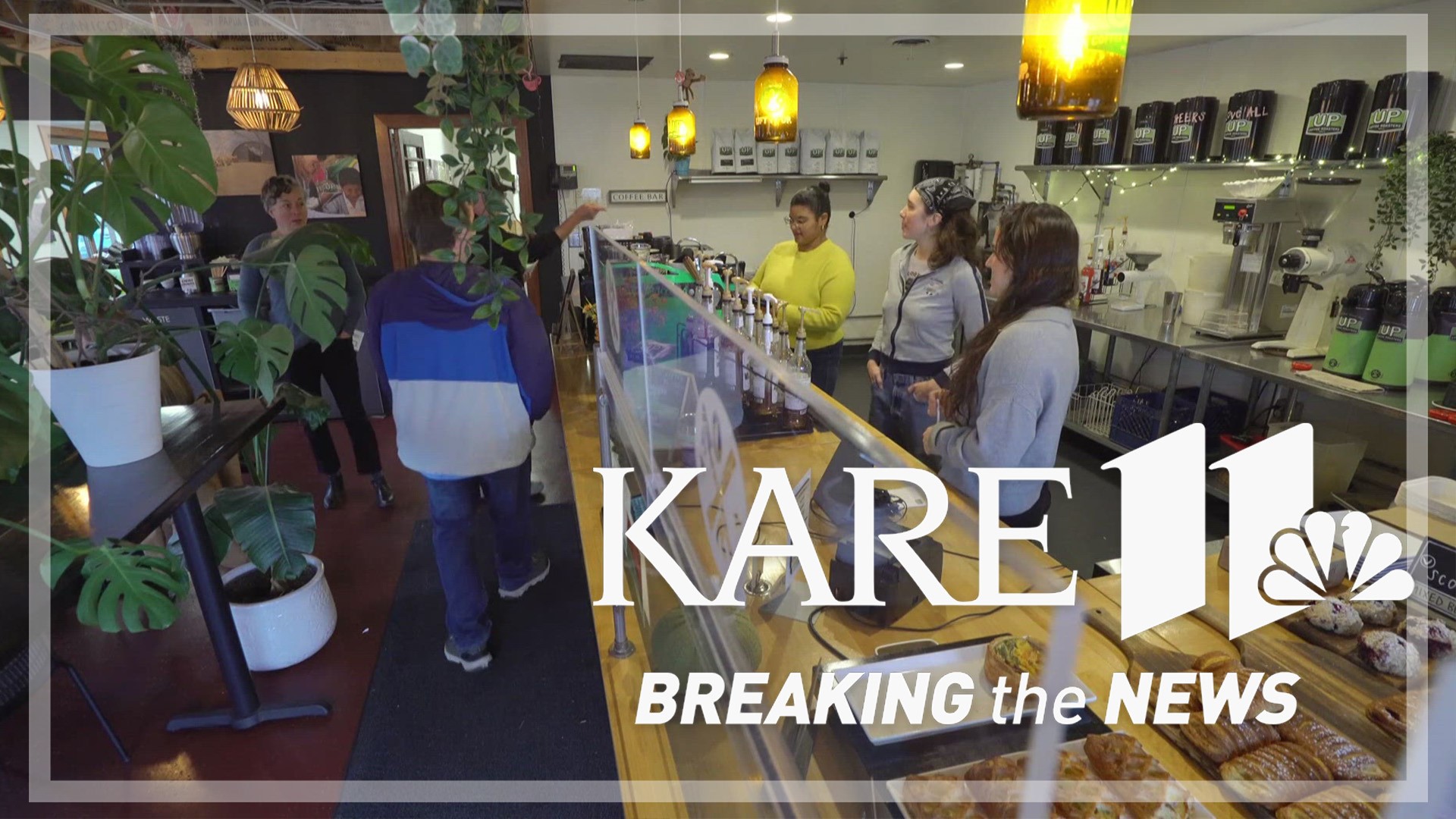MINNEAPOLIS — The vast majority of Americans agree that expectations around tipping have expanded to include more services in recent years, but that doesn't mean they're happy about the so-called "tipflation" phenomenon.
A new Pew Research survey examining Tipping Culture in America, indicates that confusion about what and where to tip is growing alongside those expectations.
According to the survey, 72% of Americans say expectations of tipping have spread to more places, but how people respond to those expectations depends on a lot of factors.
Generational Gap
If you're looking for a shot of perspective from those in the service industry, baristas at Up Cafe and Coffee Roasters in Minneapolis say they've noticed young adults tip a lot more for a latte.
"I've noticed that a lot of younger people are more willing to be more generous when they tip," said Hailey Rhoades.
But that doesn't mean they always want to. According to the survey, 38% of 18 to 29 year-olds said they consider tipping an obligation, rather than a choice. Just 25% of those 50 and older said they see it as an obligation.
"That definitely makes sense. I feel like Gen Z, specifically, speaking from personal experience, we get a little bit anxious about what's expected of us in those types of situations," said Bonnie Young, a barista at Up Cafe. "I feel like, almost guilty sometimes, pressing 'no tip,' depending on where I am."
But when you remove the guilt that comes with the tip prompt screen at a service counter, some believe that generational difference flips.
"The younger you go, the less likely a driver will see a tip," said Chey Eisenman, owner of Chey Cab and Car Service.
Eisenman says she believes the advent of Uber changed generational tipping trends that she and her drivers with Chey Cab and Car Service see.
"Part of the premise of Uber, when it came around, was you don't need to tip," she said.
Overall, the survey found that roughly 61% of people "always or often" tip taxis or rideshares, far above the 25% who say they "always or often" tip their baristas.
In general, more and more people report being confused about if they should tip for different services, but the most confusion about that question appears to come from the group with the highest level of education. Of respondents with postgraduate degrees just 22 percent finding it very easy to know if they should tip.
"Whether I was a server at a restaurant or a bartender or a cab driver, I've noticed that the higher educated are often times, not as good of tippers," Eisenman said.
Still, over the years, she says the biggest indicator of how someone will tip, usually comes down to how much they have served others.
"The most generous people are often times middle class people, working class people, service industry and small business owners," Eisenman said. "People assume, because I am a chauffer and I drive a limo, that I only drive rich people and rich people are who pay my bills. Actually, it's everybody in the middle that gives me my living, and they are our most generous customers, too."
"It's like a solidarity thing," Rhoades said. "I appreciate your work and I understand this is how you're making your money."
But keep in mind, even baristas have their limits.
"One time my car got impounded and a tip prompt showed up, so you know, it's everywhere now," Young said. "Did I leave a tip? No. That was the one time. They had a sign on the door that said, 'We don't want to take your car, you gave us no choice,' but I feel like they had a choice."
Young, Rhoades and Eisenman all agree that, overall, they have seen tips increase since the pandemic. They credit that to people generally seeming more appreciative for the services they provide.
According to the survey, the most tipping frustration appears to stem from confusion at restaurants.
Roughly 70% of Americans said they oppose automatic services charges or tips on their bill, and 72% believe servers should keep tip money, not be forced to split it with others.
Watch more Breaking The News:
Watch all of the latest stories from Breaking The News in our YouTube playlist:

